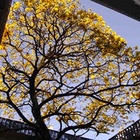1. “Is your mom there?”
“She went to the byouin (hospital).”
“Is something wrong?”
“Yeah, her head.”
“Oh…”
“She’s going to change her hairstyle.”
“Oh I see, she went to the biyouin (salon).”
2. “How’s the new job?”
“It was no good.”
“What?”
“I didn’t make it in time for the interview.”
“Why?”
“I confused yokka (4th) with youka (8th).”
3. After a fight with his wife, the man stormed out of the house as he said, “I want jiyuu (freedom)!” His wife, shocked, went to the police in tears. She thought her husband had said “I want a jyuu (gun)!”
4. “Today is a hot day, so let’s drink some biru (building) inside of that biiru (beer).
The four examples above are hypothetical situations, but there are many such instances that occur when foreigners speak Japanese.
“Hospital/byouin (bYO-een)” and “Salon/biyouin (bee-YO-een)”, “fourth/yokka (yo’KA)” and “eighth/youka (YOH-ka)”, “freedom/jiyuu (gee-YOU)” and “gun/jyuu (joo), “beer/biiru (BEE-roo)” and “building/biru (BE-roo)”. I think it is similar to Japanese people who struggle to differentiate between he “R” and “L”, or “B” and “V” sounds. Since they can’t hear it, they can’t pronounce it correctly.
With that said, speaking Japanese seems more difficult. It’s no different for us Nikkei—it’s still hard to learn. Unless you’ve been born and raised in Japan, Japanese is certainly a foreign language.
Even if I manage to improve my listening comprehension, speaking is even harder. There’s a funny example of this. A Brazilian neighbor once told my mother: “It’s unbelievable. My neighbor is Japanese, and they’re able to have a conversation while the parents are speaking in Japanese and their kids are speaking in Portuguese. How is that possible? I don’t get it.”
Another one of the “difficult things” is reading and writing. It’s necessary to know kanji. Out of all of the characters, Kanji characters are the hardest ones to learn. I’ve heard of a story of a woman, in Japan for dekasegi, who told her boss, “I won’t understand if you speak in Kanji.”
I learned a little bit of kanji at Japanese school. Unfortunately, when I began middle school (in Brazil), I stopped studying Japanese. As a result, I drifted even further away from Japanese. My only contact with Japanese was reading the Japanese “Shoujo Club” magazine that my father got for me every month.
Recently I’ve found an interest in learning Kanji, and little by little… as they say, you’re never too old to learn, and I’m enjoying it [laughs].
I’ve even tried composing a senryu (satirical poetry); I’m having fun and taking it easy.
熟年離婚 はなしたくない ペットと理由
(Middle-aged divorce
I don't want to talk about it,
I don't want to say goodbye to my pet)
© 2011 Laura Honda-Hasegawa




